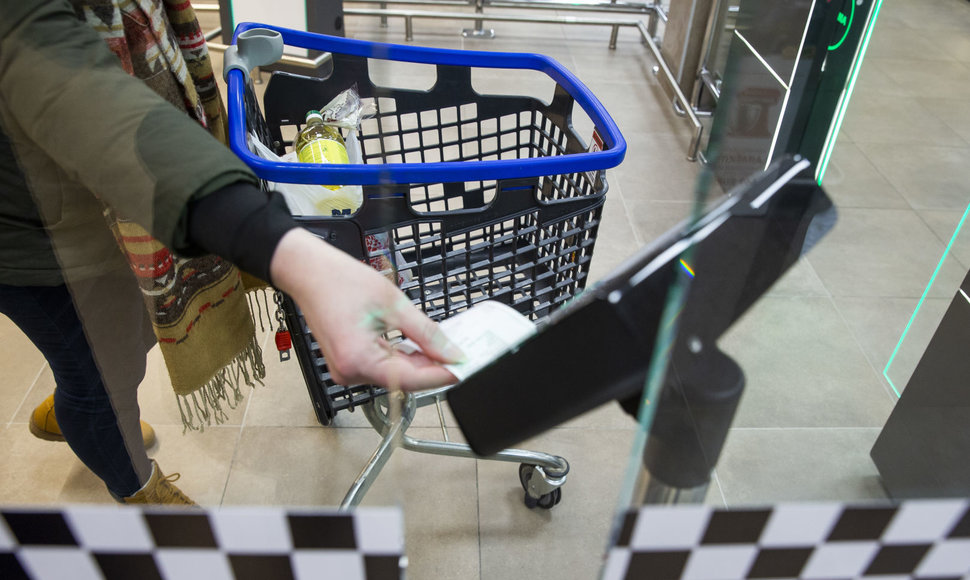This year, the Lithuanian supermarket chain Maxima is planning to invest more than EUR 3.5 million in self-checkouts, which are becoming increasingly popular with customers all over the country.
“The popularity of self-checkouts is constantly growing. We started installing them in 2009 and we now have 550 such machines in supermarkets all over Lithuania. Last year, we installed more than 120 units and invested about EUR 1.5 million, and this year we will install additional 300 self-checkouts,” says Irtautė Ščerbavičienė, Chief Operations Officer at Maxima.
A survey of Maxima’s loyal customers at the end of 2017 showed that almost every other customer gives priority to self-checkouts and pays for their purchases in this way at least 3 times out of 4. Another 29% of shoppers also use them, but less often.
“On the one hand, people are noticing that the queue for the self-checkout machines is actually shorter, because they are waiting for not one, but usually 6-8 self-checkouts. No other person wastes our time at the self-checkout, and everyone can choose the pace of shopping that suits them – you have enough time to pack your scanned items, and the others waiting will not frown while you are searching for your wallet. It might be fair to say that people prefer to go to self-checkouts not because they are in a hurry, but because they experience less stress as these machines allow us to pay at the speed we like and need,” says the psychologist Liepa T. Raškevičienė.
According to her, our beliefs and attitudes may become the incentive for choosing or not choosing the self-checkout.
“The reasons are far more diverse than just ‘I won’t be able to do it’ or ‘I can't learn it’. For example, one can feel more in control of the shopping process by scanning barcodes, entering quantities, weighing products, monitoring prices and applying discounts”, observed the psychologist.
Independence versus technological challenges
According to the psychologist, it is likely that the self-checkouts are used by people who prefer independence and also perhaps by those who are a little more confident in their ability to use innovative technologies.
“Sometimes, I have shoppers say they that don’t use self-checkouts because they think they aren’t be able to find products that have to be weighed in the search system. However, for today’s children who are technology-savvy, and who are growing up not only with soothers in their mouths but also with tablets in their hands, the self-checkout will no longer be a challenge,” explains Liepa T. Raškevičienė.
Chief Operations Officer of Maxima, I. Ščerbavičienė, also emphasises that those customers who try out self-checkouts come back to them on a regular basis, and those who are not used to them can be instructed by supermarket staff who are ready to help at any time.
“The world is undergoing an amazing transformation in terms of humans and technology, which is touching more or less all areas, all generations and all territories. Therefore, what older people often have to learn is already self-evident to younger ones,” the psychologist points out.












